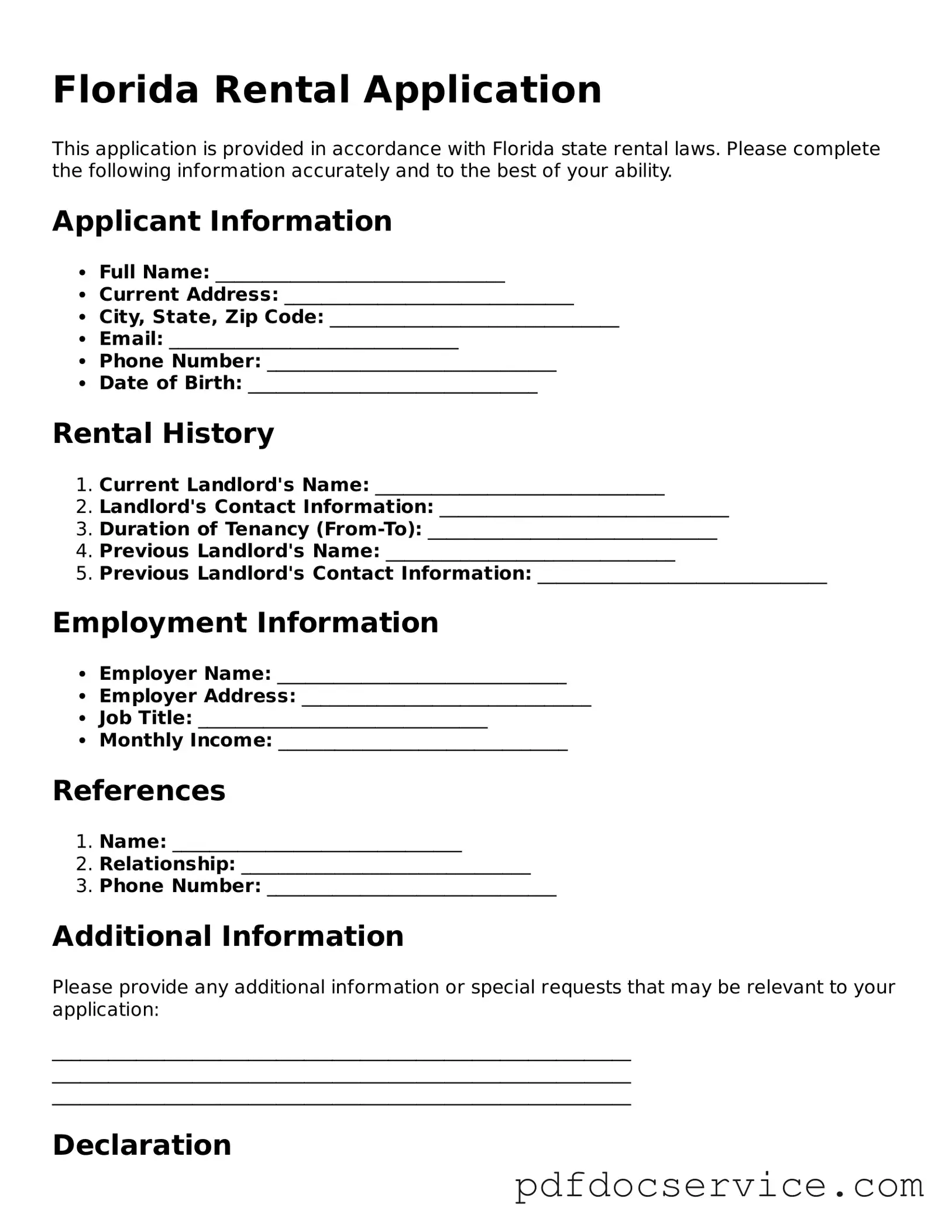A Florida Rental Application form is a document that potential tenants fill out when applying to rent a property. This form collects essential information about the applicant, including personal details, rental history, employment information, and financial background. Landlords use this information to assess the suitability of applicants for their rental properties.
Why do I need to fill out a rental application?
Filling out a rental application is crucial for several reasons:
-
It allows landlords to verify your identity and background.
-
It helps landlords assess your rental history and financial stability.
-
It can expedite the leasing process, making it easier for you to secure a rental.
Most Florida rental applications will ask for the following information:
-
Personal details, including your full name, address, and contact information.
-
Social Security number or other identification numbers.
-
Employment history, including your current employer, job title, and income.
-
Rental history, detailing previous addresses and landlords.
-
References, which may include personal or professional contacts.
Is there a fee to submit a rental application?
Yes, many landlords or property management companies charge a fee to process rental applications. This fee can vary widely, often ranging from $25 to $100. The fee covers the costs of background checks, credit reports, and administrative expenses. Make sure to ask about the fee before submitting your application.
How long does it take to process a rental application?
The processing time for a rental application can vary. Typically, it takes anywhere from 24 hours to a week. Factors that influence this timeframe include the responsiveness of previous landlords, the availability of background check services, and the complexity of your application. To avoid delays, ensure all information is accurate and complete when submitting.
What happens if my application is denied?
If your application is denied, the landlord is required to provide you with a reason. Common reasons for denial include poor credit history, insufficient income, or negative rental history. If you believe the denial was unjust, you can request a copy of your credit report and dispute any inaccuracies. Understanding the reasons can help you improve your chances in future applications.
Can I appeal a denied application?
Yes, you can appeal a denied application. Contact the landlord or property management company to discuss the denial and express your desire to appeal. Provide any additional documentation or references that could strengthen your case. While there is no guarantee of success, it’s worth a try, especially if you believe the denial was based on inaccurate information.
Are there any protections for tenants in Florida regarding rental applications?
Yes, Florida law provides some protections for tenants. For instance, landlords must comply with fair housing laws, which prohibit discrimination based on race, color, national origin, religion, sex, familial status, or disability. Additionally, landlords must handle personal information collected through rental applications responsibly and in accordance with privacy laws.

